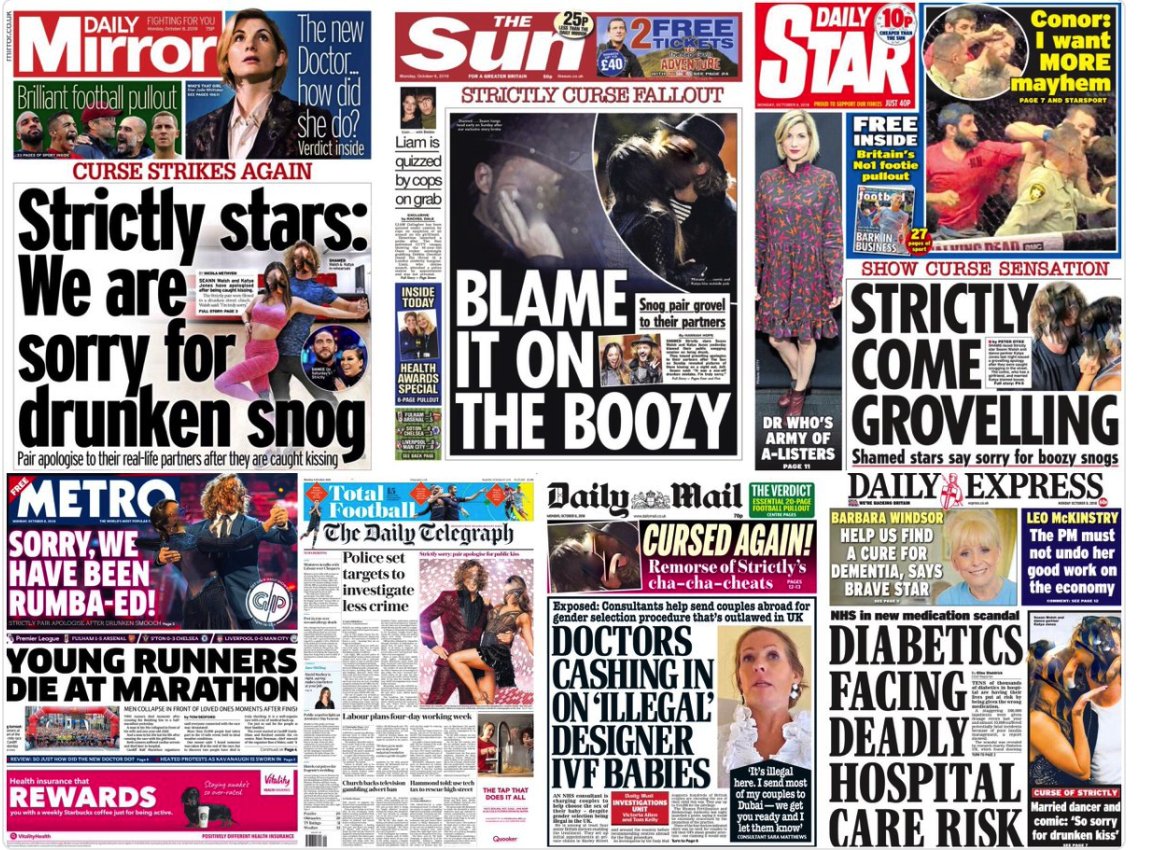1 (thread). Most UK papers think a drunken snog at Strictly is the most important story today. More important than a terrifying new #IPCC report saying we have 12 years to stave off the catastrophic effects of global warming... 

2. More important than this (from @guardian. The Independent and @washingtonpost also led on it, along with the @BBC. London Times leading on Brexit.) 

3. Broadsheet editors have always been lectured on how patronising they are to believe “they know best”. So worthy to tell people what they *should* be interested in.
4. But how patronising to assume readers of any paper not concerned with droughts, floods, extreme heat and poverty for millions. Not to mention knock-on effects on immigration, security, food, health and economic stability for the UK
5. If voters are kept in the dark about global warming by newspapers then urgent action by democratic politicians becomes a hundred times harder
6. Editors will argue that climate change doesn’t sell newspapers. Which may or may not be true. This argument says: “Our business model doesn’t allow us to do journalism in the public interest.”
7. If so, then we urgently need to reinvigorate the conversation about how to sustain journalism that does contribute to the public interest. #BreakingNews
• • •
Missing some Tweet in this thread? You can try to
force a refresh




